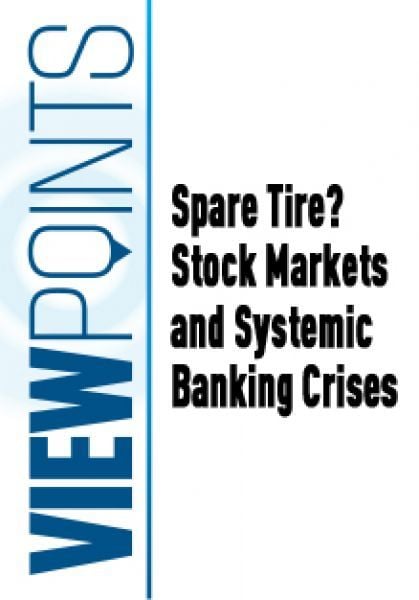
Spare Tire? Stock Markets and Systemic Banking Crises
Do stock markets act as a “spare tire” during banking crises by providing an alternative form of corporate financing when the banking system goes flat?
In 1999, Alan Greenspan, then chairman of the Federal Reserve, argued that stock markets could mitigate the negative effects of banking crises, including the weakening of businesses and increased unemployment. Using the analogy of a spare tire, he suggested that banking crises in Japan and East Asia would have been less severe if those countries had built the legal infrastructure needed to enable stock markets to provide financing to corporations when banks could not. Until recently, researchers had not evaluated Greenspan’s spare tire view.
In a new paper written with Chen Lin of Hong Kong University and Wensi Xie of the Chinese University of Hong Kong, forthcoming in the Journal of Financial Economics - Spare Tire? Stock Markets, Banking Crises, and Economic Recoveries - we provide the first assessment of the spare tire view.
The view makes three core predictions:
- First, companies will achieve better performance if they can issue equity at low cost when banking crises limit the availability of bank loans.
- When a systemic banking crisis reduces lending, the benefits of a sound stock market will accrue primarily to firms that depend heavily on bank loans.
- The spare tire view stresses the ability of the stock market to provide financing during a banking crisis.
